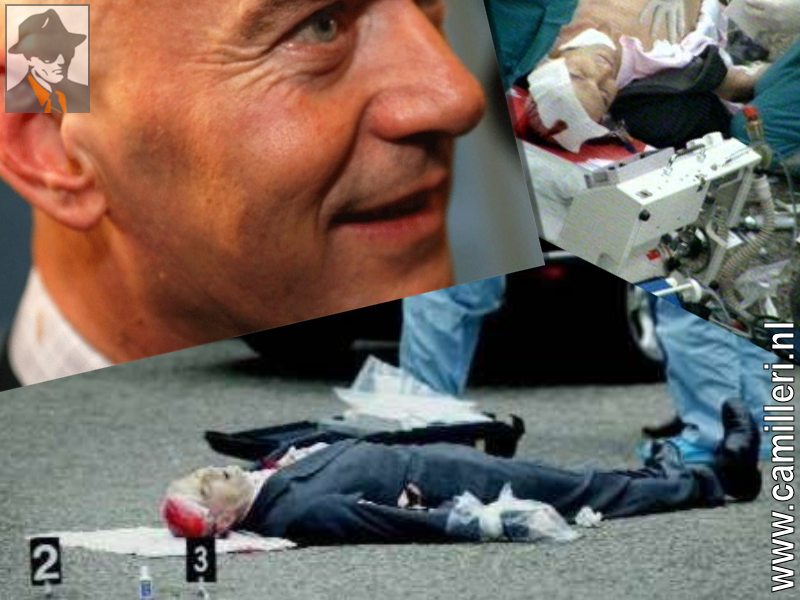![tribute_pimfortuyn2]() The cold-blooded killer of politician Pim Fortuyn has been granted parole six years before the end of his 18-year sentence, after a judicial panel overruled deputy justice minister Fred Teeven for a second time.
The cold-blooded killer of politician Pim Fortuyn has been granted parole six years before the end of his 18-year sentence, after a judicial panel overruled deputy justice minister Fred Teeven for a second time.
Wilhelmus Simon Petrus Fortuijn, known as Pim Fortuyn, was a Dutch politician, civil servant, sociologist, author and professor who formed his own party, Pim Fortuyn List in 2002, and had a good chance to become the next Prime Minister.

The Council for the Administration of Criminal Justice and Protection of Juveniles (RSJ) rejected Teeven’s argument that rehabilitating Volkert van der Graaf in the community risked causing social unrest.
The decision was condemned by members of Fortuyn’s family and by Freedom Party (PVV) leader Geert Wilders, who said: “It’s as if Mr Fortuyn has been murdered again today.” Prime Minister Mark Rutte said he disagreed with the panel but would respect its decision.
During last year’s election campaign Rutte said any minister who gave Van der Graaf parole would lose his job. In fact, in a televised debate the prime minister said it was “unthinkable” for any politician to let the convicted killer out of jail before the end of his sentence. He added that if the courts granted parole “we must change the system”.

Dutch politician Pim Fortuyn and Dutch filmmaker Theo Van Gogh murdererd for their anti-Islamization views. Will Dutch politician Geert Wilders be next?
The murder of Fortuyn, in a car park at Hilversum’s media centre in broad daylight at the height of the 2002 election campaign, was a seismic event in Dutch politics. Van der Graaf, an animal rights activist, shot him at close range. The prosecution service said he committed the killing because he saw Fortuyn’s style of populist politics as “polarising” and a danger to society. The 44-year-old is due to be released in May next year after serving two-thirds of his 18-year sentence.
Bruce Bawer on Pim Fortuyn: On May 6, 2002, a Dutch sociologist and writer turned politician named Pim Fortuyn was gunned down in a parking lot in Hilversum in the Netherlands. Fortuyn’s party, Lijst Pim Fortuyn, was doing extremely well in the polls, and it looked as though, barring a major upset, he would actually become the next prime minister of the Netherlands.
Fortuyn was a social scientist who had gone into politics for one reason and one reason only: because he saw that the precipitous rise of Islam in the West, and especially in his own nation, was a catastrophic development, and he was determined to do everything he could to preserve the liberty and equality that he cherished before it was too late.
An extremely intelligent, well-educated, and charismatic man, graced with humor and gifted with an extraordinary courage that enabled him to withstand the most brutal and unfair assaults from his ideological enemies, Fortuyn was poised, some of us felt, to become a Churchill – a hero of freedom who would inspire his fellow European heads of government to follow his lead.
He was the one major politician out there – not only in his country, but in any country – who was speaking, without hesitation, euphemism, or equivocation, the uncomfortable truths that needed to be spoken. And then – suddenly – he was gone.
Fortuyn, we felt, might well prove to be the man who would chart a courageous, humane, and workable way forward out of the mess that Europe had gotten itself into.

